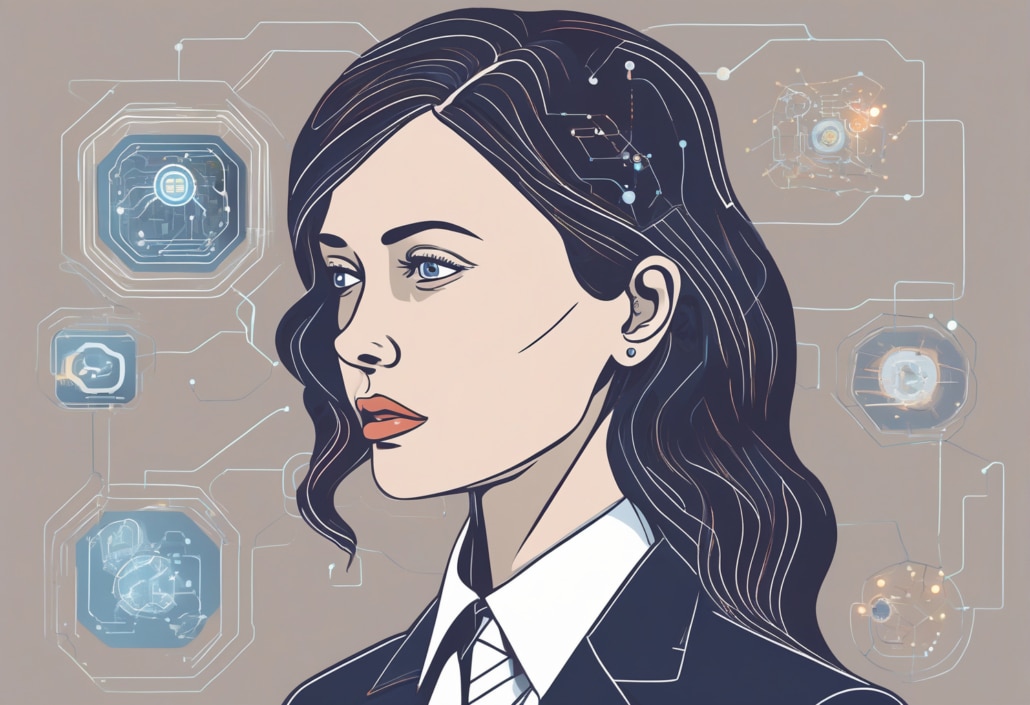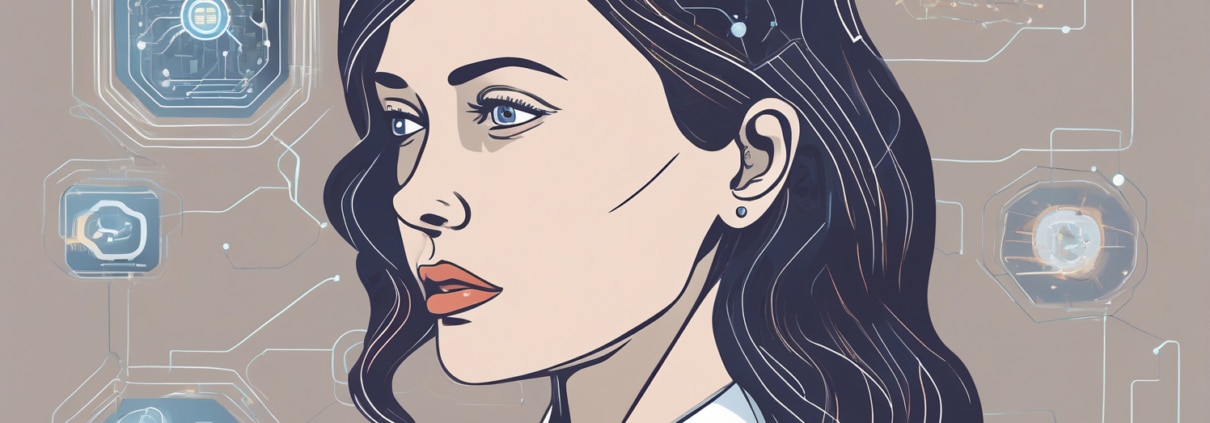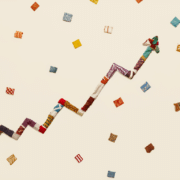In The Age Of AI, Critical Thinking Is More Needed Than Ever

The rise of AI has proven to be a watershed moment in history, with countless arguments for and against its use in practically every industry and use case conceivable. With generative AI receiving the majority of the public’s attention, writers and other creatives have been especially vocal about the risks of AI being used to supplant their human output.
With AI now seeing widespread use online and elsewhere, critical thinking skills have never been more important. Real people with sharpened critical thinking skills aren’t just equipped to solve problems AI can’t — they will also be better positioned to successfully leverage AI to improve their own capabilities, improve AI’s outputs and weed out bad actors.
No clever prompt we type into an AI tool will ever be able to replace human critical thinking – especially when tools like ChatGPT are often inaccurate. In reality, critical thinking becomes even more necessary in the age of AI, both to use it properly, and to do the necessary work behind the scenes to make it a more reliable tool.
AI Is Still Rife With Limitations
There’s a big difference between machine learning and “machine thinking.” And quite frankly, the minute we start looking at AI as machine thinking, we’re in trouble, because it means we’ve tried to outsource our own critical thinking and problem solving skills to a machine that is only replicating and regurgitating information it has gathered. Large language models are looking for existing patterns of information, perhaps even synthesizing them. But they can’t exercise judgment, no matter how nuanced, or fast, their outputs are.
While AI has clearly made significant advances over the last few years, it is still prone to several noteworthy limitations, such as the potential for making up information, generating biased outputs and demonstrating gaps in reasoning abilities.
Such issues are readily available proof that we can’t turn over our thinking to machines. Even as AI gets more advanced, it absolutely requires the intervention of real people who can check for data inaccuracies, biases, logical inconsistencies and even suggestions that go against ethical standards.
As Feyaza Khan, an editor of AI training data at Toloka, explains, “AI is undeniably getting better, but it still requires a lot of human labor behind the scenes to ensure that the models put out quality responses. Writers and editors who work with AI must have strong critical thinking skills to objectively evaluate the content for accuracy, while also making improvements so that it will sound more human. Good AI can’t learn from itself. High-quality, responsible and accurate AI will continue to rely on human intervention to actually learn new things and generate quality content.”
Of course, to effectively train and improve AI, those involved must have strong critical thinking skills themselves. In writing, for instance, they must be able to identify inaccurate or problematic text, provide expert insight and be able to place themselves in the shoes of the intended audience to determine whether the generated content actually provides value.
Subscribe to the Ethical Systems Newsletter
Critical Thinking Is Key to Harnessing AI’s Potential
Generative AI has revolutionized AI development to connect GPT to a wide range of custom solutions. However, this progress demands a solid foundation of truthful data sourced from human experts. Human-derived insights are vital throughout production of large language models like ChatGPT to improve quality and fine-tune for specific use cases.
As Khan explains, “Fact-checking, source analysis and other critical thinking skills are crucial for properly training AI. These applications of critical thinking, especially when combined with an AI trainer’s own expertise, make all the difference in ensuring accuracy and preventing bias. Yes, LLMs can offer amazing output. But human expertise and oversight – especially those critical thinking skills – are essential to guide AI capabilities in the right direction.”
As an example of this, Khan works with teams of writers who create answers to prompts to be used for AI. Khan then reviews this content and gathers additional perspectives to edit the output generated by the AI. Given its current limitations, working with AI requires significant devotion to critical thinking to evaluate responses and suggestions, rather than accepting them at face value.
In this case, human teams leverage their critical thinking skills to improve the output of LLMs to ensure they deliver the right outcomes for their specific use cases. The need for critical thinking ensures that humans remain part of the process, even as AI continues to improve.
We All Must Improve Our Critical Thinking Abilities
With AI use being so rampant (and not always produced by people with the best intentions), it is crucial that you carefully vet new information, particularly by evaluating the source of that information (human or otherwise). Be careful to consider multiple points of view as a measure of countering your own biases and preconceived notions, and do research to gather additional information.
In her work consulting with major global companies, Helen Lee Bouygues found that the root cause of most organizational problems stemmed from a lack of critical thinking. She suggests that leaders question their assumptions, particularly in high-stakes situations, reason through logic to avoid making false assumptions and seek diversity in thought and background from those they collaborate with to avoid groupthink.
These are essential skills that have always been important in the business world and elsewhere, but are even more needed with AI implementations to ensure that AI can deliver more accurate and reliable results — and that you can recognize when it goes astray.
AI + Humans
The blend of human ingenuity and generative AI could become a powerful marriage. Critical thinking is the ability to analyze, evaluate, and synthesize information to form well-reasoned judgments or decisions. It involves actively and skillfully conceptualizing, applying, analyzing, synthesizing, and evaluating information to reach an answer or conclusion. These are the basis of why human cognition is so complex.
While AI can perform some tasks exceptionally well, including data analysis and even some forms of logic, it lacks the nuanced understanding and flexibility of human thinking. Here are a few reasons why our critical thinking is so important as AI proliferates in our work and personal lives.
1. Contextual Understanding: AI lacks the ability to fully grasp the subtleties and nuances of human language and context. Critical thinking often involves understanding context, background information, and the broader implications of a situation, which can be challenging for AI.
2. Creativity and Innovation: Critical thinking often involves creativity and thinking outside the box. While AI can generate solutions based on existing patterns and data, it struggles to generate truly novel ideas or approaches.
3. Ethical Considerations: Critical thinking involves ethical reasoning and moral judgment, which are complex and context-dependent. AI lacks human values and moral intuition, making it difficult for it to navigate ethical dilemmas effectively.
4. Emotional Intelligence: Critical thinking sometimes requires understanding and empathizing with different perspectives, emotions, and experiences. AI lacks emotional intelligence and the ability to understand human emotions and motivations.
5. Adaptability: Critical thinking often requires adaptability and the ability to adjust reasoning strategies based on new information or changing circumstances. While AI can be trained on new data, it lacks the flexibility and adaptability of human thinking.
With some reports indicating AI could replace up to 300 million jobs, it’s understandable that there would be concern about what its impact could be. But remember, 60% of today’s workers are in jobs that didn’t exist in 1940. For those who take advantage of AI, new opportunities like AI Data Trainer jobs are bound to become an important part of the future of work that heavily rely on critical thinking skills.
Regardless of how you ultimately end up using AI, sharpening your own critical thinking and problem solving skills will ensure that you can continue to provide value and grow in your chosen career path.
Reprinted with permission from Forbes.









